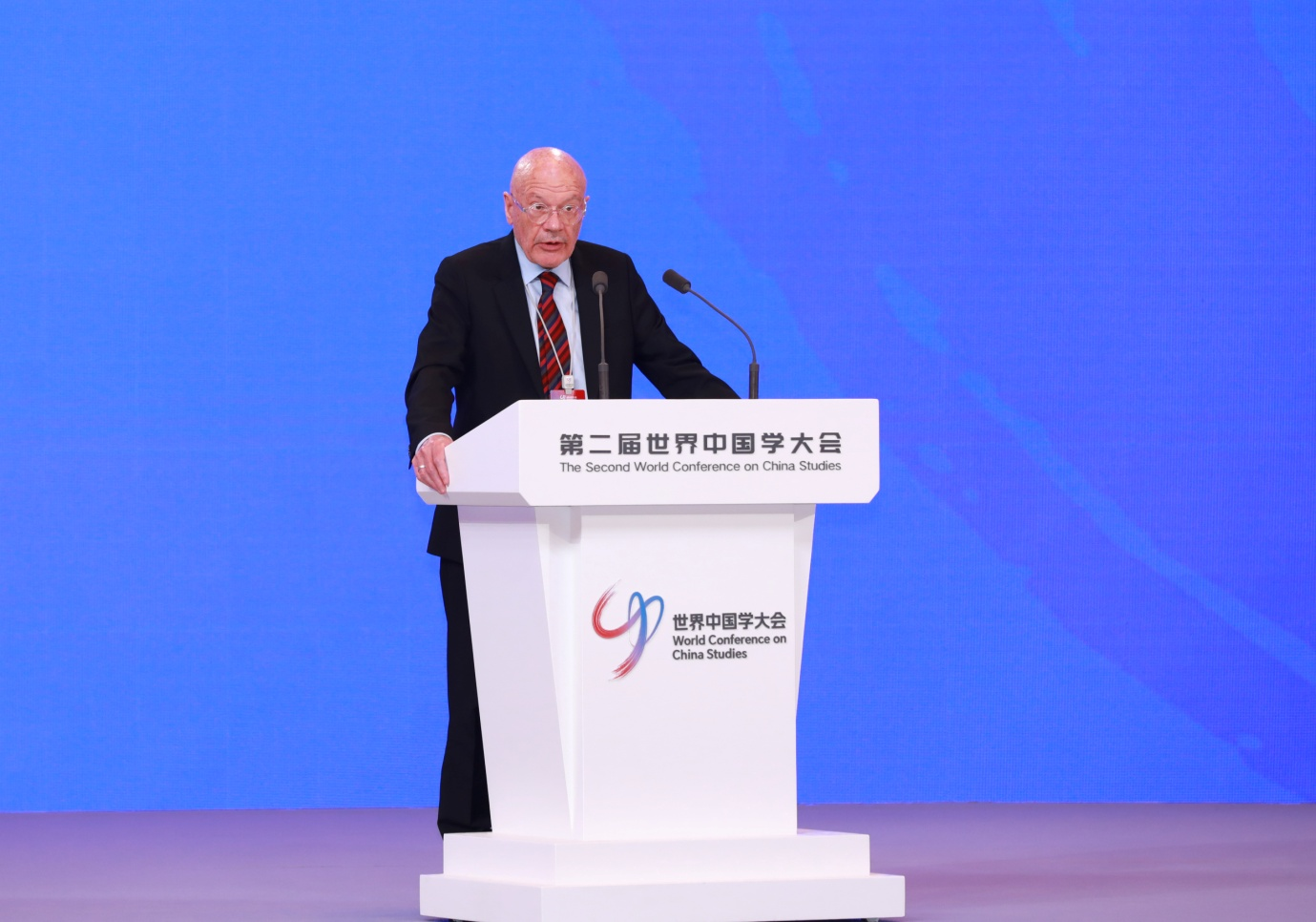Knowing about China:A key Pre-Condition for Global Experts

Martin Jacques's Speech at the Second World Conference on China Studies:Understanding China Grows as a Vital Prerequisite for Global Experts.
The role, nature, and importance of China Studies is undergoing a profound transformation which mirrors that of China itself. Two decades ago, China Studies was very different. Reflecting China’s stage of development, it was relatively China-centric, both in China and internationally, and was mainly comprised of Sinologists. As China’s rise led to its emergence as a global power, increasingly present in all parts of the world, so China Studies and interest in China Studies has become a global phenomenon. As China became a crucial actor in global economic growth, climate change, global governance, technological innovation, and the Global South, so China Studies became increasingly important and, also, increasingly hybrid. You didn’t need to be a China scholar to be interested in and knowledgeable about China’s role in all these areas and many others. As China went Global, so did China Studies. Knowing about China, being informed about China, increasingly became an important pre-condition for global experts in a growing number of fields.
If previously the main centre of China Studies outside China was the West, this is fast changing and is less and less the case. As China became increasingly involved with the Global South, developing countries such as Chile, Brazil, Malaysia, Nigeria, Pakistan, Kazakhstan, Saudi Arabia, and countless others, needed to be knowledgeable about and able to relate to China, be it the Belt and Road Initiative, the Shanghai Co-operation Organisation, the four Global Initiatives, trade with China or Chinese investment. Given that the great majority of the world live in the Global South, and their countries are increasingly entwined with China, the Global South is now the major growth area for China Studies. Foreign students at Chinese universities are much more likely to come from the Global South than the United States or Europe. We are witnessing the globalisation of China Studies and with it a progressive decentring of Western influence in China Studies. Western attitudes towards China are still influential in developing countries, but increasingly less so, as the Global South interacts more and more with China and, as a consequence, form their own views on the basis of firsthand experience, knowledge and research, and increasingly less on the Western media.
The growing importance of social media and now, above all, artificial intelligence will have a profound effect on China Studies, as it is already having in every area of knowledge. We are all familiar with the concept of the global village; the contraction of the world brought about by air travel, smartphones, and instant communication. In the Age of AI, we are witnessing the birth of the global village of knowledge. It is now possible to access huge amounts of information instantaneously, enabling access to knowledge and frameworks that were previously the preserve of specialists and libraries. The work of specialists is being transformed, and universities and research centres are in the early stages of profound change. A distinctively Chinese AI can play a very important role in this process.
One of the great problems facing China Studies has been the paradigmatic division between China and the West; the belief by most Western scholars and experts that China should be understood through the prism of the West. Ultimately, they seek to measure China, in whatever field, according to Western criteria, by the extent to which China is ‘westernised’. By this yardstick, of course, China always fails. China is not Western, never has been and never will be. The starting point can only be understanding China as it is, in its own terms, not denying China its specificity, its profound historical and contemporary difference. This, in my opinion, is still the dominant attitude amongst the Western intelligentsia, as reflected in the attitude of Western governments, political parties, the media, and universities.
This, perhaps more than anything, explains Western negativity towards China; that it always fails the Western test, that it is not Western, that it is fundamentally inferior. These attitudes are very deep, a product of more than two centuries of Western global supremacy. The West has a singular view of the world and is intolerant of difference: every country must take the Western way. The consequence of this mentality has been very damaging for the West. It means that the West doesn’t understand China, that its predictions about China are almost invariably wrong. The problem facing the West is that, despite its protestations to the contrary, China keeps rising, is overtaking the West in field after field, is becoming the new bearer of modernity. In short it is displacing the West. This way of thinking impoverishes the West culturally and intellectually. It prevents it from understanding and learning from other cultures and civilizations, their logic, their wisdom, their values, and their achievements.
China Studies is entering an age of great expansion as the world seeks to understand China, work with it, and learn from it. We are only at the beginning of this process. Even now, China’s remarkable history, its extraordinary culture, its hugely effective governing system and tradition, the nature of its foreign policy, are, beyond a point, still little understood, which is hardly surprisingly given that until relatively recently China has been isolated from the world. There is already, and even more will be in the future, a huge thirst to learn about China. This is the great challenge for China Studies over the decades to come.